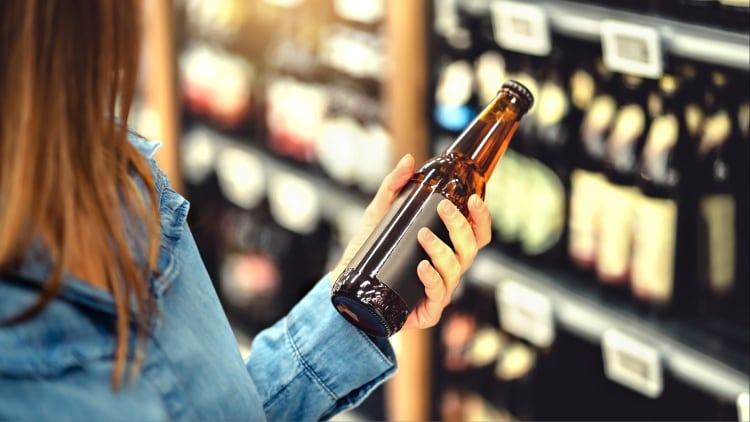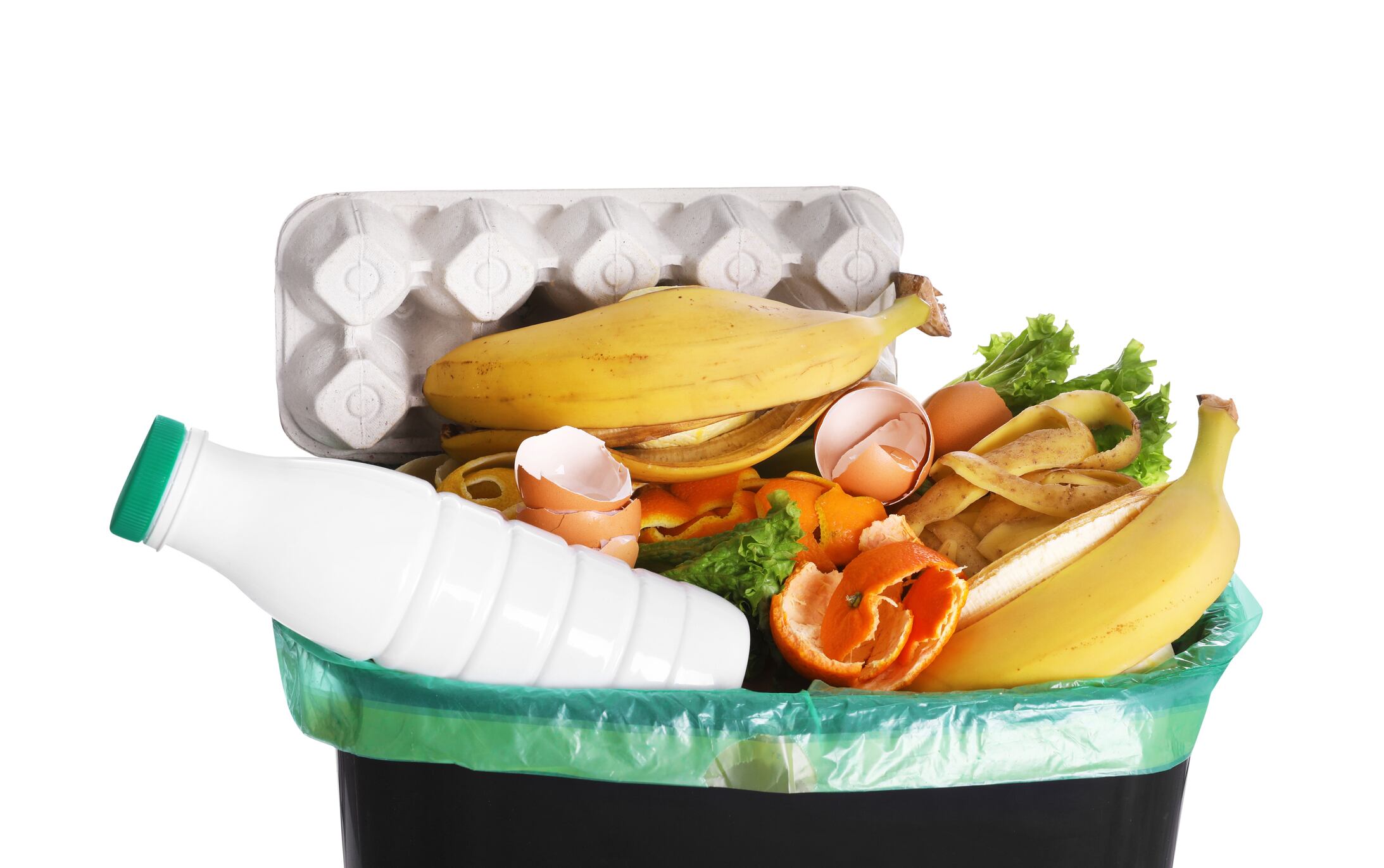Somehow 2024 is already upon us, and with the new year comes a host of both fresh and familiar trends for drinks manufacturers to keep abreast of.
The past 12 months saw no and low alcohol drinks and dairy alternatives continue grow in popularity, while sustainability claims on drinks packaging were scrutinised more than ever. With modern day consumers increasingly considering the health benefits and environmental impacts of the products they buy, expect the above trends to gain further influence in 2024.
As always though, unforeseen trends will emerge that shake up the industry. Finding a niche that resonates with consumers online and in-store has never been more important and the manufacturers that achieve this look set to prosper, especially as inflation and the cost of living crisis ease.
No one can predict the future, but with insight from numerous figures from a variety of vantage points within the drinks sector, Food Manufacture has highlighted some of the key trends to be aware of in 2024.
An evolving alcohol market
As referenced in the introduction, the rise in popularity of alcohol alternatives was one of the biggest drinks trends of 2023 and industry figures do not expect the turning over of the calendar to change that, particularly among younger people.
A YouGov survey published in January 2024 found that 44% of drinkers between 18 to 24 occasionally or regularly order alcohol alternatives. This is up from 31% in 2022, while 39% of this cohort do not drink at all.
Firms are often keen to appeal to the younger generations, and Mathew Orme, the director at UK water brand Wenlock Spring, believes this data will inform further innovation within the low and no alcohol category.
“The taste of low and no alcohol drinks has also greatly improved over the last couple of years and it has become harder to taste the difference,” said Orme.
“What it means is retailers can’t afford to ignore this trend. This will create some exciting challenges for businesses due to the increased demand with some brands seeing over a 200% increase year-on-year. New technology in this market will also help keep up with demand and improve the taste.”
Orme’s perspective was echoed by Jo Taylorson, head of marketing and product management at wine and spirits supplier Kingsland Drinks. Taylorson noted that the switch many people have made towards no and low alcohol drinks was being driven by health concerns, before urging producers and retailers to take the burgeoning category “seriously”.
“Contemporary drinkers are moving away from sweet, sugary alcohol-free wines or spirits, and looking for satisfying, stylish grown-up drinks that don’t compromise on taste,” explained Taylorson.
“In the past, non-alcoholic drinks were an option for those who do not drink alcohol, such as designated drivers or pregnant people, but this is no longer the case and looking to 2024, we expect these drinks to become even more mainstream, with creative zero alcohol spirits (such as tequila), RTDs and wine-based drinks using botanicals, herbs and spices, citrus and exotic fruits. Shoppers are prepared to pay a premium for these to give them an elevated experience and an unusual alternative to alcoholic drinks.”
Another trend within the alcohol market that Taylorson highlighted was the continued growth in popularity of ready-to-drink (RTD) products. She described 2023 as the year when the RTD category experienced an “explosion of popularity” and sees no reason why this trend will slow down.
“They’ve landed into retail with bright, eye-catching packaging designs, purse-friendly deals and discounts alongside punchier RRPs helping to drive spend and have been embraced by those looking to try new drinks on the market without having to purchase expensive bottles or multiple spirits and mixers,” Taylorson added.
Sustainability remains important
Conversations about climate change are unavoidable within all industries right now and Taylorson believes that consumers are more concerned with and informed about climate change than ever before.
She continued: “Brands highlight their efforts to reduce their carbon footprint, use eco-friendly packaging, or support conservation initiatives to help build brand credibility and awareness. These stories resonate with consumers who want to make a positive impact through their purchases.”
Ian Bryson, managing director at independent coffee roaster Lincoln & York, has seen the demand for sustainably sourced produce take hold of the coffee sector first hand and expects the trend to come into greater focus in 2024.
“While sustainably sourced coffee is by no means new, we expect consumers will become even more conscious of the carbon footprint of their coffee in 2024, with 63% of consumers actively looking for sustainably sourced coffee option,” Bryson said.
As Frugalpac chief executive Malcolm Waugh told Food Manufacture in August 2023, packaging is a key consideration for drinks firms looking to reduce their carbon footprint and the claims manufacturers make about the materials they use have come under increased scrutiny.
In November, drinks firms including Coca-Cola, Danone and Nestlé Waters/Nestlé were reported to the EU over claims made about the recyclability of their packaging, while it was announced a month later that the Competition and Markets Authority was launching an investigation into Unilever over green claims made on packaging. As concern about climate change grows and more information becomes available, expect to see similar cases crop up going forward.
Dairy alternatives are here to stay
Building off the past two trends, expect to see sustainably sourced alternatives to a traditional staple such as milk continue to thrive in 2024. According to data from Push, one in three people in the UK now drink plant-based milk alternatives, while Statista rates the UK milk substitute market as the second largest in Europe at a value of $650m (£512m).
According to Artisan Coffee Co, a premium speciality coffee brand founded by ex-chef Ashley Palmer Watts, the demand for milk alternatives can be linked to a wide variety of considerations.
“Consumers value having a choice and by providing a variety of milk types, showing that brands care about their preferences and support their health values too,” a report published by the coffee brand read.
“The movement is being driven by people who are increasingly opting for a vegan or dairy-free lifestyle, are lactose intolerant, or are concerned for environmental or animal welfare reasons. Some people are just opting for alt-milks because they love the taste, and more specifically, how it tastes in coffee.”
Looking at the data from 2023, a Euromonitor International report said that while milk alternatives are becoming widespread, plant-based cheese and yoghurt products “remain relatively niche”, hinting at the greater levels of quality and accessibility within the milk substitutes market.
The popularity of plant-based milk around the world was further put into context by a Global Market Insights (GMI) study that projects the global market to exceed $21bn (£17bn) by 2026. Reflecting on the study, a spokesperson explained: “As the market continues to expand and innovate, we can expect an even broader array of options, catering to an increasingly diverse consumer base.
“Plant-milk is poised to become a cornerstone of the global food and beverage landscape,” they added.
Meanwhile, Oatly, a leading producer oat milk, was rated by UK consumers as the most sustainable food and drink brand, according to research conducted by market research firm Impact. Speaking to Food Manufacture about the honour, Oatly UK & Ireland general manager Bryan Carroll, described the work that had gone on behind the scenes that meant that the brand’s message was getting through to consumers.
Carroll continued: “Oatly Barista has a 58% lower climate impact than comparable cow's milk, so we know the more people putting oat drink, rather than cow's milk, in their coffee the better. From revealing the true cost of dairy on people and planet, publishing the carbon impact of our products on every label, or calling on the UK government to make carbon labelling mandatory, we are proud to be playing our small part in realising a more sustainable food system.”
Growing variety within coffee
Coffee manufacturing and processing remains big business in the UK and looks set to be influenced by a number of varying trends during 2024. According to the Artisan Coffee Co report, one key trend to look out for is the rise of decaffeinated or low caffeine coffees on the market.
The report found that occasion is a big determinant of what people want from a coffee, with preferences differing between weekdays, evenings and weekends.
“Now more than ever, people are consciously making choices about what they consume and the effect that will have on their body; for some, that means managing or lowering their caffeine intake,” it read.
“Young consumers in particular, have driven renewed attitudes towards decaf, and they are now doing the same for 50-50 blends. Many coffee professionals believe that low-caff (or half-caff) options won’t just allow consumers to drink more coffee more often – but enable them to taste it better than ever before by reducing bitterness.”
Another trend that the report noted was the growing demand for blends and flavoured coffees. Cold brews have been a notable success in recent years and this is informing new innovation.
The report read: “Floral flavours like jasmine, rose, lavender, hibiscus and eucalyptus are expected to experience steady growth in the year 2024 (according to Jaime Lynn Lawrence, an R&D application scientist at Flavour Insights). This projection is based on the ever-increasing demand for health and wellness products among consumers. Lavender is known for its calming properties, while hibiscus is rich in antioxidants.”
Lincoln & York analysis agrees with this assessment, with Bryson stating that the iced coffee market has risen in value by 37%.
“The popularity of cold coffee shows no signs of cooling off,” he explained.
“More suppliers across out of home and retail are looking for quicker ways to create high quality iced coffees and RTD products, including dairy-free alternatives.”





